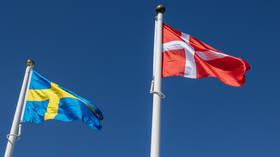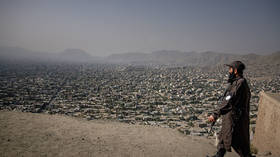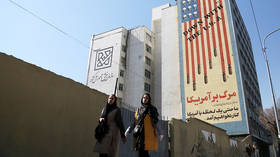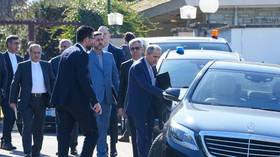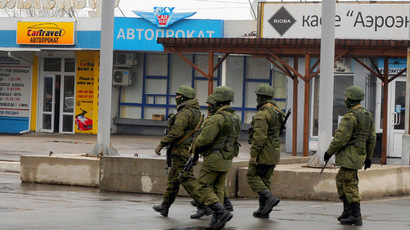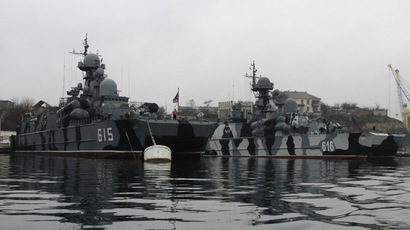Putin: Russian citizens, troops threatened in Ukraine, need armed forces’ protection
Russian President Vladimir Putin has requested the use of Russian military forces in Ukraine to settle the situation there. The Russian population and the Crimea-based Black Sea Fleet are threatened by the situation in the country, he said.
Facts you need to know about Crimea and why it is in turmoil
Putin’s request was filed after the Chairman of the Federation Council, Valentina Matvienko, said that in order to “protect the people” Russia could theoretically send troops to Ukraine. She particularly referred to the crisis in the Autonomous Republic of Crimea, where Russians make the majority of the population.
“It’s possible in this situation, complying with a request by the Crimean government, even to bring a limited contingent of our troops to ensure the safety of the Black Sea Fleet and the Russian citizens living on Crimean territory. The decision is for the president, the chief military commander, to make, of course. But today, taking the situation into account, even that variant can’t be excluded. We need to protect the people,” Matvienko said.
“In connection with the extraordinary situation in Ukraine, the threat to the lives of citizens of the Russian Federation, our compatriots, and the personnel of the armed forces of the Russian Federation on Ukrainian territory (in the Autonomous Republic of Crimea)... I submit a proposal on using the armed forces of the Russian Federation on the territory of Ukraine until the normalization of the socio-political situation in the that country.”
The Russian government has so far been careful in its assessment of the new self-proclaimed Ukrainian government in Kiev. Matvienko said the reason for that was Russia counting on its Western partners, who vowed to guarantee the February 21 agreements between ousted Ukrainian President Viktor Yanukovich and the opposition.
“Russia did not interfere in the situation in Ukraine for a very long time and showed restraint, assuming that the Western states, which became backers of the agreements, would see that strict compliance with the deal is observed,” she said.
However, after “violent upheaval” took place in Ukraine, the Western states did not come up with “any reasonable measures or responses,” Matvienko said.
Russia, in contrast, for a very long time has urged the situation to be resolved by lawful means, and called for the anti-coup sentiments in Crimea and in eastern Ukraine to be heard, she said.
“Not seeing an adequate reaction from the West, we could no longer maintain status quo,” the speaker concluded.
Matvienko spoke as thousands of pro-Russian demonstrators rallied in the Crimean cities of Simferopol, Melitopol, Yevpatoria and Mariupol, protesting against the rule of new Kiev authorities.
The Russian leader held detailed phone discussions on
“various aspects of the extraordinary situation in
Ukraine" with US President Barack Obama, the Kremlin press
service reported.
Putin stressed that in the case of further spread of violence in
the eastern regions of Ukraine and Crimea, Russia reserves the
right to protect their interests and the Russian speaking
population.
Putin emphasised the existence of real threats to the life and
health of Russian citizens on Ukrainian territory.
In a separate conversation with French President Francois
Hollande, Putin said that there is a real threat to the lives of
citizens of the Russian Federation in Ukraine, Itar-tass reports.
The Russian commander in chief also held a telephone conversation
with UN Secretary General Ban Ki-moon to discuss the case of an
escalation of violence against the Russian-speaking population in
the eastern regions of Ukraine and Crimea, the Kremlin announced.
Putin stressed that Russia cannot remain on the sidelines and
will apply the necessary measures within the framework of
international law to prevent further escalation of the crisis in
Ukraine.
According to the Russian Constitution, the use of Army on foreign territories can only be approved by the majority of the Federation Council members upon a request by the President.
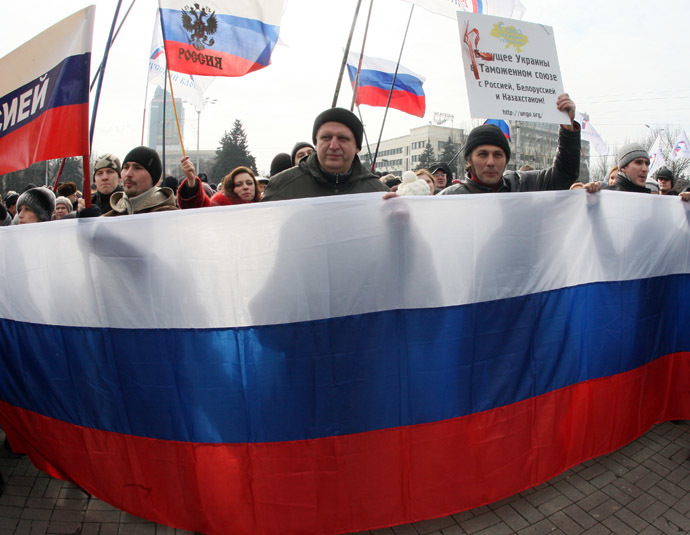
The developments follow an appeal by the Prime Minister of the Autonomous Republic of Crimea, Sergey Aksyonov, who requested that Russia to help cope with the crisis and ensure “peace and calm” in the region.
The tension in Crimea escalated following an attempt to seize the building of the local Interior Ministry by gunmen overnight. Russia’s Foreign Ministry condemned the move in a statement, blaming the new authorities in Kiev for intending to “destabilize the situation on the peninsula.”
Meanwhile, self-proclaimed Ukrainian Acting President Aleksandr Turchinov has signed a decree ruling that appointment of the pro-Russia premier in Crimea is “illegal.”
Aksyonov, who is the leader of Crimea’s Russian Unity party, was
appointed as the new Prime Minister of the autonomy after the
Crimean Supreme Council dismissed the regional government. Peace
and order in the region has been maintained by local armed
self-defense squads, which were widely misreported as Russian
troops on Friday.
Massive media speculation also arose around claims that the
Russian military have been making “illegal” moves in
Crimea. The Russian Foreign Ministry sent an official note to
Ukraine, stressing that all the moves are carried out “in
full accordance with basic Russian-Ukrainian agreements on the
Black Sea Fleet.”




